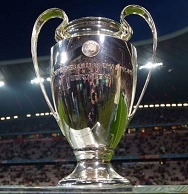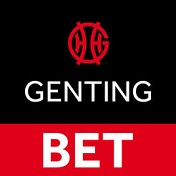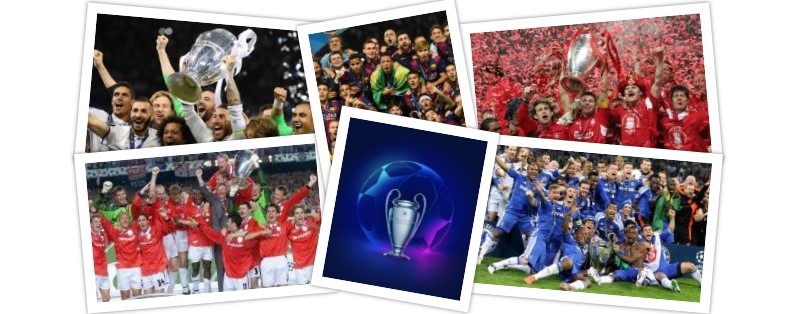
Presidential Debate Causes Biden Odds To Shorten
American voters who viewed last night’s debate between Donald Trump and Joe Biden were left shaking their heads with dismay at the ill-tempered and bitter…
 It’s the biggest club competition in the world, and the one that every European side wants to win. But who will go all the way and win this season’s Champions League? The latest bookies odds will go some way towards giving us the answer, and this selection of Champions League betting offers will help you profit. You wouldn’t want to go to the bookies without them!
It’s the biggest club competition in the world, and the one that every European side wants to win. But who will go all the way and win this season’s Champions League? The latest bookies odds will go some way towards giving us the answer, and this selection of Champions League betting offers will help you profit. You wouldn’t want to go to the bookies without them!
Whichever way you’re going to bet, we have some outstanding offers to make the best possible profit from your Champions League betting. A range of special offers and free bets are available to give you the winnings you deserve.
Below you can see the best odds available on the most popular markets. Why settle for less when you can get enhanced winnings on your Champions League bet. Just click your choice below to open a betslip now!
Click any price to open a betslip at bet365.
| Full Time Result | ||
|---|---|---|
| Home Win 16/5 | Draw 13/5 | Away Win 19/20 |
| Over/Under 2.5 Goals | |
|---|---|
| Under 10/11 | Over 10/11 |
| Both Teams To Score | |
|---|---|
| Yes 3/4 | No 1/1 |
| To Lift The Trophy | |
|---|---|
| Tottenham 7/4 | Liverpool 4/9 |
If you’re a new customer, you can choose to take a betting offer such as the ones below, all of which can be used on any Champions League fixture. A free bet can be used on any bet you want to place, and the winnings can be withdrawn in cash. This makes these the ideal bonuses to claim when betting on the ECL this season.
| Bookmaker | Details | Claim |
|---|---|---|
 | Up to £100 in Free Bets New customer offer. Place 5 x €10 or more bets to receive €20 in free bets. Repeat up to 5 times to receive maximum €100 bonus. Min odds 1/2 (1.5). Exchange bets excluded. T&Cs apply. T&Cs / Wagering Requirements | Claim |
 | Bet £10 Get £30 Free - Use Promo Code 30F Minimum deposit of £10 using deposit code 30F - A qualifying bet is a ‘real money’ stake of at least £10 placed on any sports market - Minimum odds of 1/2 (1.5) - Free bets credited upon qualifying bet settlement and expire after 7 days - Free bet stakes not included in returns - Casino Bonus must be claimed within 7 days • To withdraw bonus/related wins, wager bonus amount x40 within 14 days • Wagering req. vary by game • Withdrawal restrictions and Full T&C’s apply | Claim |
In addition to the new customer offers listed above, you can find a much longer list of free bets here. In the unlikely event that you’ve already joined every single betting site listed, you might also be interested in some of these football promotions, which are available to all players at the bookies below.
| Site | Offer Details | Get It Now |
|---|---|---|
| Ts & Cs or Country Restrictions May Apply - Click Claim Button For Details | ||
 | Football, Racing, Tennis, Golf & Basketball - Price Rush Get your bets increased to higher odds. | Visit Site |
 | Accumulators - Football Acca Insurance 5+ Team Accas - Money back if one team lets you down | Visit Site |
 | Accumulators - Football & NFL Acca Insurance 5-Fold or more Acca - Money Back if one leg lets you down | Visit Site |
 | Acca Insurance - Refunds when your Footy/Racing/Dog Acca goes down by one Min Bet £2– Min Legs 6 or more on any Greyhound, Horse Racing or Football match winner markets only – Min odd 1/2 (1.5) or greater on each selection – Max Refund £25 - Free Bet stakes are not included in bet returns – Free Bet valid for 7 days from credit. full T&C’s apply | Visit Site |
 | COIP / Partial Cash Out - Range of sports inc Football, Tennis, Horse Racing, Golf PLUS Get Double Profit the first time you use it! | Visit Site |
 | All Football Matches - Cash In My Bet Feature Take your profit any time in any football match. | Visit Site |
If you’re new to the Champions League then where have you been all this time? never mind, it’s never too late to start watching and betting on the world’s biggest and most popular club soccer tournament. Here’s a complete guide to the format and how it all works.

Since its introduction back in 1993, qualification for the Champions League has had many rule changes and we’re sure it will continue to do so. For now though, for a team to automatically qualify for the Champions League they have to have come from one of UEFA’s four higher ranking leagues across Europe.
The higher rankings leagues for the most part have always been Spain, Germany, Italy and England, but for ten years or so only three of these nations were allocated four qualifying spots. Now though, after a recent rule change, all four of these nations can have teams qualify for the group stages with no play offs.
Unless there is a dramatic upturn of success and I suppose influx of cash, the four countries mentioned above will continue to have their four qualification spots for a long time to come. As it would take the likes of the further down ranked nations like France, Portugal, Russia, Belgium and the Ukraine to do a lot to dislodge those above them.
Currently the lower down ranked nations outside of the top four share the remaining spots to gain automatic entry into the group stages. With a couple of nations receiving two automatic spots and one spot through qualification dependant on their ranking.
Then other nations, again dependant on their ranking, like Turkey, Czech Republic, Austria, Holland get one automatic spot and one qualifying spot. With all the other nations across Europe, unless specified, being allocated one qualifying spot with the chance to go through to the group stages.
As well as the above, the Champions League winners and Europa league winners from the previous season are automatically given a group place. However, is most cases the winners tend to normally qualify through their respective league the following season anyway, so if this in the case their spots getting allocated to other leagues and teams who then go into the qualifier matches.
For the group qualifying process, any team from a country that is not allocated an automatic spot, but has as won their respective countries league will go into what is known as the Champions Path. Then, any team that has qualified for the qualifying rounds thanks to finishing second, third or even fourth in the league will go into what is know as the League Path.
Both the Champions Path and the League Path currently have five rounds of qualification, starting with the very lowest rank teams who go into the Preliminary round. This is followed by the First qualifying round, Second qualifying round, Third qualifying round and then finally a Play-Off Round.
The whole qualifying process usually starts in mid-June and finishes towards the end of August with two-legged ties for all the games. Once this process is complete all the qualifying teams will join the automatically qualified teams in the Group Stage draw, ready for games to begin in September.
Obviously year on year, qualification rankings as well as rule stipulations can change, as ultimately if certain teams from certain countries are more successful than others then their allocation increases. It’s a rewards process at the end of the day and the reward? A place in the Group Stages!
There has been various ideas suggested and implemented over the years for the Champions League group stages and I’m sure they will be even more to come going forward. However, for now it is still currently eight groups of four for the thirty two qualified teams and these fixtures are generally played between September and December.
The groups are decided by four lots of seeding, with eight teams being seeded as pot 1, eight as pot 2 and so on. Therefore each group will then contain 1 team from each of the pots with pot 1 being the highest seeded teams. Teams from the same country however cannot be drawn into the same group.
Once the draw is made, the four teams then play each other home and away with the usual three points for a win and one for a draw. Once all group fixtures are completed the top two from each group progress to the Knock-Out stage of the Champions League. If for any reason there are teams on the same amount of points, then it is firstly decided on goal difference, then by their head-to-head results.
There is a reprieve for the team finishing third in each of the groups though, as they get the chance to enter the Knock-Out stages of the Europa League. Finish bottom however, you are officially out.
Once the Group Stages are complete, the Knock-Out stage draw takes place. However, the Champions League does take a break for two months before starting up again in mid to late February.
Like the Group Stages, the Knock-Out draw also has some stipulations on who can play whom and once again teams from the same country cannot face each other in the Round-of-16 Stage. All teams that finish top of their group will play against a team that finished second in their group, however you also cannot be drawn against the other team that was in your group in the previous round.
The teams again play each other both home and away with the first leg decided by which team finished first or second in the group stages. Away goals count at the stage as well, which means if a match is drawn over two legs the team with the most away goals will go through. If the teams cannot be separated by away goals and all things are level, then the match will progress to extra-time and if still level, the dreaded penalties will come into force until there is a winner.
With eight teams qualified at this stage the Champions League really does come alive. With both the Quarter and Semi-Final draws taking place at the same time and with absolutely no restrictions on who you could or could not face. These matches are usually played around March and April too.
Once all this has been decided and there are two teams left, you head into the Champions League Final which normally takes place at the end of May. The venue for the actual Final is normally chosen at least two years in advance and as long as it has at least a 60,000 plus capacity you have every chance of staging the event.
Depending on your age you’ll have been brought up on historic stories of either the European Cup or as it is now known the Champions League. From the early dominance of Real Madrid in the fifties to the success of clubs like Benfica, Ajax, Bayern Munich, Liverpool and AC Milan to name but a few.
When did it all begin though? Well, both before and after World War 2 there was numerous “friendlies” and competitions conceived with clubs from around Europe, but it wasn’t until 1955 that the European Champion Clubs’ Cup was created, aka The European Cup
Sixteen teams took part in the inaugural competition including big names like AC Milan, PSV Eindhoven, Real Madrid, Rapid Vienna, Sporting Lisbon and Anderlecht. Along with a few lesser known teams these days like Gwardia Warszawa from Poland, German side Rot-Weiss Essen and Stade de Reims from France.
British involvement was only from Scottish side Hibernian who also competed in it, but due to the English Football Association banning any entrance to the competition there was no English representation. However, that wouldn’t stop Sir Matt Busby and his Manchester United side the following year when they did enter against the wishes of their FA.
Despite there being some big names teams in early days of the competition, no one could stop the late great Alfredo Di Stefano and his Real Madrid side who won the first five European Cups. All of which were against different teams in the final, except for Reims who they faced in both the 1956 and 1959 finals.
Then in 1960 Real Madrid were knocked out in an early round by their Spanish rivals Barcelona who went to reach the final for the first time themselves. Unfortunately the Catalans lost to Portuguese Side Benfica in the final, who themselves proceeded to win back to back titles of their own by beating Real Madird the following year as well.
Real Madrid and Benfica then reached final for the next three years, but on all occasions one of the other lost to an Italian side from Milan. Firstly AC Milan winning in 1963 before Inter won back to back cups the following couple of years. Real Madrid came back again though and won it and their sixth title in total in 1966.
The British sides finally started to make their mark on the European Cup, with Celtic and their Lisbon lions beating Inter to become the first British side to left the trophy in 1967. The following year and just ten years after the fatal Munich Air Crash that killed 23 people, including 8 players, Manchester United, still under the guidance of Sir Matt Busby lifted the famous trophy at Wembley in front of over 90,000 fans.
Celtic reached another final in 1970 but lost to Dutch side Feyenoord and that started a trend of Dutch winners as Ajax with their midfield play maker Johan Neeskens helping them to secure three straight European Cups. Bayern Munich followed that up with three of their own titles straight after that as well, before full on dominance of English football kicked in.
As Bob Paisley became the most successful manager in European Cup history winning three European Cups in the space of five years with his Liverpool side. Only Zinedine Zidane in recent years has equalled Paisley’s record of three European Cups as a manager of one club.
The English dominance also included Brian Clough and his Nottingham Forest team, who are still the only team to win the European Cup more times than their own domestic league when they won back to back titles in 1979 and 1980. Aston Villa also won it when they beat Bayern Munich in 1982 to make it six wins from the last six finals for English sides. German side Hamburg then beat Juventus in 1983 before Liverpool grabbed their fourth crown in eight years in 1984.
Liverpool couldn’t however make it a fifth title in nine the following year as they lost to Juventus, but that final is more remembered for The Heysel disaster which saw 39 people killed in the stands when a wall collapsed after trouble broke out between both sets of fans.
After this all English clubs served a five-year-ban from the competition, whilst Liverpool were excluded for six years in total. During this time there was six different winners of the competition including Steaua Bucharest, Porto, PSV Eindhoven, Red Star Belgrade, Barcelona and AC Milan who actually won it back to back in 1989 and 1990.
Barcelona’s win under manager Johan Cruyff at Wembley in 1992 was incredibly the Spanish sides first ever success in the competition and it would also go down in history as the last ever European Cup Final. As a year later the competition was revamped and renamed the Champions League.
In the first ever renamed Champions League in 1993 there was a first time winner of France and that was Marseille when they beat AC Milan in Munich. Wins followed after that for AC Milan, Ajax and Juventus before there was another first time winner in Borussia Dortmund in 1997 as they beat Juventus who had made it to three straight finals in the mid-nineties but only won one.
Real Madrid then won three of the next five finals to take their total wins to nine by 2002, but it was the dramatic game at the end of the century that had everyone talking. Yes in 1999 Manchester United beat Bayern Munich 2-1 with two injury time goals from Teddy Sheringham and Ole Gunnar Solskjaer to give Sir Alex Ferguson and his team their famous treble of trophies that season.
Bayern recovered from that dramatic defeat to finally win it again in 2001, AC Milan did the same to win it again themselves in 2003. However in 2004 there was a shock winner when Jose Mourinho and his Porto side beat Monaco 3-0 to get their hands on the trophy for a second time.
In 2005 Liverpool came back dramatically from 3-0 down at half time to draw 3-3 with AC Milan before beating them on penalties as they lifted their fifth European Cup. Liverpool’s success started a string of finals involving English sides with five of the next six containing an English team. Unfortunately there was only two wins in that time and that was for Manchester United (who beat Chelsea on penalties) in 2008, and then Chelsea themselves four years later.
Arsenal lost to Barcelona in 2006 and it was the same outcome for Manchester United too as they lost to the Spanish giants in both 2009 and 2011. AC Milan got their revenge on Liverpool though in 2007 in a repeat of the 05 final. Squeezed in between all of those was a 2010 win for Inter over Bayern Munich as well.
Having lost two finals in three years, Bayern got their hands on the trophy again though as the beat fellow German side Borussia Dortmund, before the Spanish dominance of Real Madrid took over once more. Barcelona may have won it in 2015, however either side of their win their rivals Real Madrid won it four more times including ‘La Decima’ as they lifted the European Cup for the 10th, 11th, 12th and 13th time after beating Atletico Madrid twice, Juventus and Liverpool. Who will win this year?